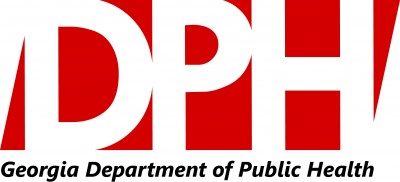 Cedartown, GA: Two raccoons have tested positive for animal rabies, and public health officials are awaiting test results on a third raccoon. Two of the three (one confirmed positive and the second pending test results) were found in the College Street area in Cedartown, but officials emphasize animal rabies can be found throughout the county.
Cedartown, GA: Two raccoons have tested positive for animal rabies, and public health officials are awaiting test results on a third raccoon. Two of the three (one confirmed positive and the second pending test results) were found in the College Street area in Cedartown, but officials emphasize animal rabies can be found throughout the county.
These are the first confirmed animal rabies cases in Polk County for 2016. Polk County had one animal rabies case in 2015, three in 2014, none in 2013, three in 2012, five in 2011 and eight in 2010.
“Reducing the risk of rabies in domestic animals and limiting human contact with wild animals are two measures central to the prevention of human rabies,” explains Kathy Couey-Miller, Environmental Health Manager at the Polk County Health Department. “We’re reminding residents to vaccinate all domestic animals, particularly dogs and cats, and to avoid exposure — for themselves and their domestic pets — to
potentially rabid wildlife such as raccoons, foxes, skunks and bats.”
Couey-Miller cautioned that wild, stray and unvaccinated animals may be infected with rabies and emphasized residents should take precautions to protect themselves, their families and their pets. “Reducing the risk of rabies in domestic animals and limiting human contact with wild animals are two measures central to the prevention of human rabies,” explained Couey-Miller.
Effective precautions against rabies include:
- Vaccinate all dogs, cats and ferrets against rabies. Check with your veterinarian to make sure your pets have up-to-date protection against rabies. Remember that the vaccination of pets against rabies protects not only the pets, but more importantly, protects people.
- Low-cost rabies vaccinations are available through Tractor Supply stores in Cartersville, Dallas, and Rome about every two weeks. Call for specific information.
- Don’t leave pet food out where wild animals can access it. Leaving pet food out is a sure way of getting wild animals to visit your home endangering you, your family and your pets.
- Remind children to avoid animals they don’t recognize, especially
stray or wild animals. These animals may be infected with rabies.
- Small children should not be left unattended with dogs, even if the dog is a pet or the child is familiar with it.
- Keep pets at home. Obey any county laws requiring that dogs be
- restrained to the owner’s property. Pets that are kept close to home are less likely to encounter a rabid animal.
- Report any raccoon, fox, bat or skunk that is out during the day in a residential area or that is behaving strangely to the local Georgia Department of Natural Resources Game and Fish Division office at 1-800-241-4113.
- Report stray dogs and cats and aggressive or sick-appearing animals to the local animal-control office.
- Don’t attempt to assist injured or sick animals without professional help. Even animals which would never bite otherwise can bite when sick or in pain.
- Bats found in sleeping quarters should be captured and tested for rabies even when there is no evidence of a bite wound or contact with the sleeping individuals.
- After-hours calls involving aggressive animals should be directed to 911.
- After-hours calls involving animal bites and their potential for rabies exposure should be directed to 866-PUB-HLTH (866-782-4584).
Polk County residents can contact the Polk County Health Department’s Environmental Health Office in Cedartown at 770-749-2253 for additional information or with any questions or concerns.
Residents can also visit the Northwest Georgia Public Health website at http://www.nwgapublichealth.org/env/rabies.htm for county-specific animal rabies data for the ten-county Northwest Health District, which includes Polk County, as well as information on rabies precautions.
Residents can also visit http://www.cdc.gov/rabies/ for comprehensive rabies information.
